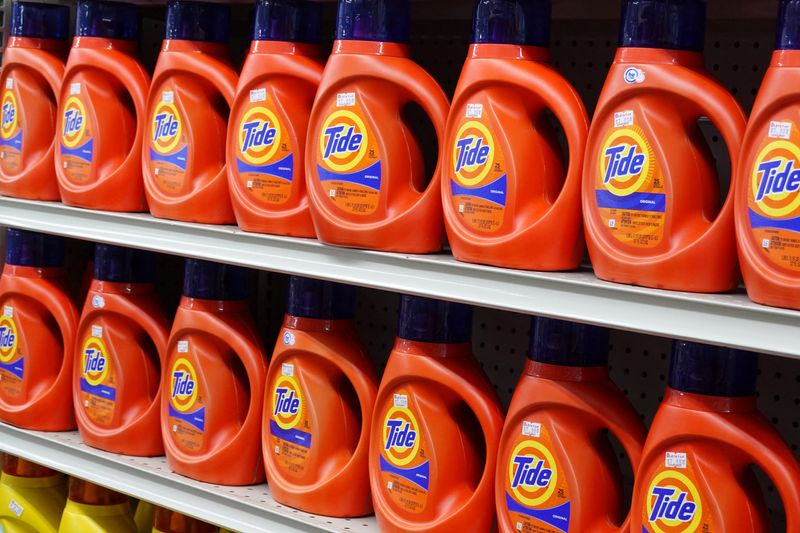By Ananya Mariam Rajesh and Kailyn Rhone
(Reuters) -Procter & Gamble on Friday beat analysts' estimates for quarterly sales and profit buoyed by the consumer goods giant's multiple price hikes even as it joined other multinational companies in flagging weak demand in China.
A slower-than-expected rebound in China following the lifting of pandemic curbs has been a drag on global firms including L'Oreal and Coca-Cola (NYSE:KO) that were facing slowing demand in many parts of the world.
Overall volumes fell 1% in the fourth quarter, in part due to soft demand in Greater China, while average prices across P&G's product categories rose 7%.
In contrast, China, the company's second-biggest market after the U.S., had helped moderate volume declines in the third quarter.
CI Roosevelt's Senior Portfolio Manager Jason Benowitz said the China business would remain a swing factor for P&G in fiscal 2024 as the current macroeconomic backdrop "makes business results more difficult to forecast than is typical for this consumer staples company."
Meanwhile, demand for the company's Pampers diapers, Pantene shampoo and Oral-B toothpaste, remained strong in the U.S., where consumer sentiment hit a two-year high as inflation subsided further.
"In the U.S., in our business we have now achieved positive volume growth of 3%," CFO Andre Schulten said on a call with reporters.
P&G forecast fiscal 2024 profit per share growth in the range of 6% to 9%, equating between $6.25 and $6.43, compared to analysts' estimates of $6.38.
Schulten said in a post-earnings call that while supply chain and input costs have become more stable entering fiscal 2024, consumer confidence and household budgets remained under pressure from the macroeconomic environment.
P&G said it expects a net benefit of around $400 million after-tax from favorable commodity costs in fiscal 2024 net of currency fluctuations.
Investors are worried about when and if the recent price hikes will start to turn shoppers off companies' brand name products as many consumers face high costs of living.
"Net sales are growing but at the expense of less units, which means they are losing customers to substitutes and will one day have to fight to get those customers back," said Michael Ashley Schulman, chief investment officer at Running Point Capital Advisors.
P&G's fourth-quarter net sales rose 5% to $20.55 billion, topping analysts expectations of $19.98 billion, according to IBES data from Refinitiv.
On an adjusted basis, the company earned $1.37 per share, beating estimates of $1.32.
P&G's shares were up 3% in early trading.
